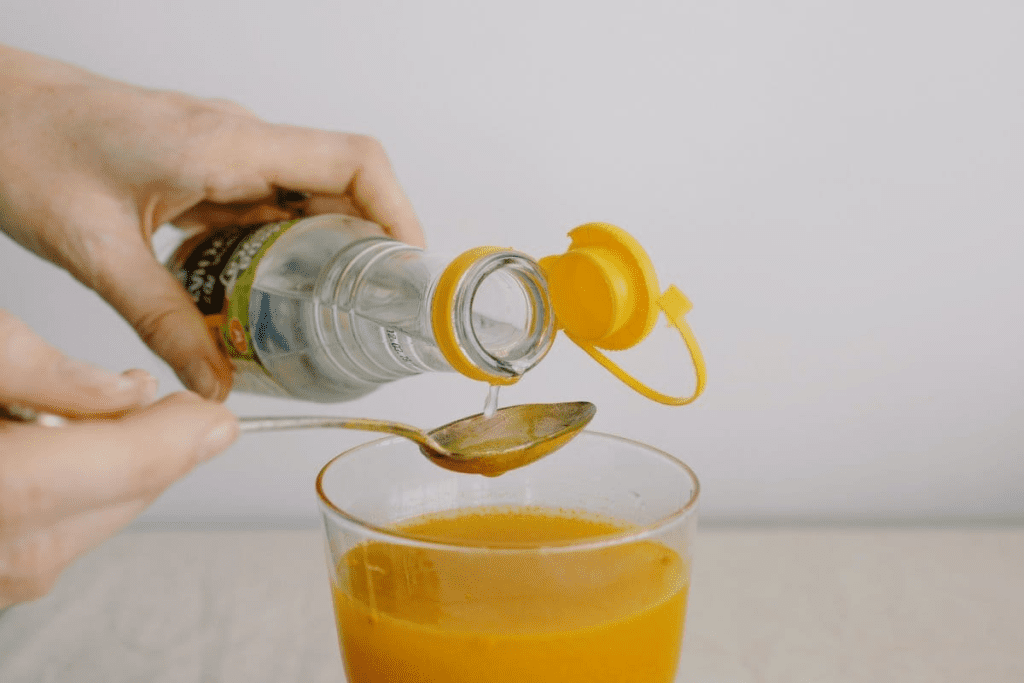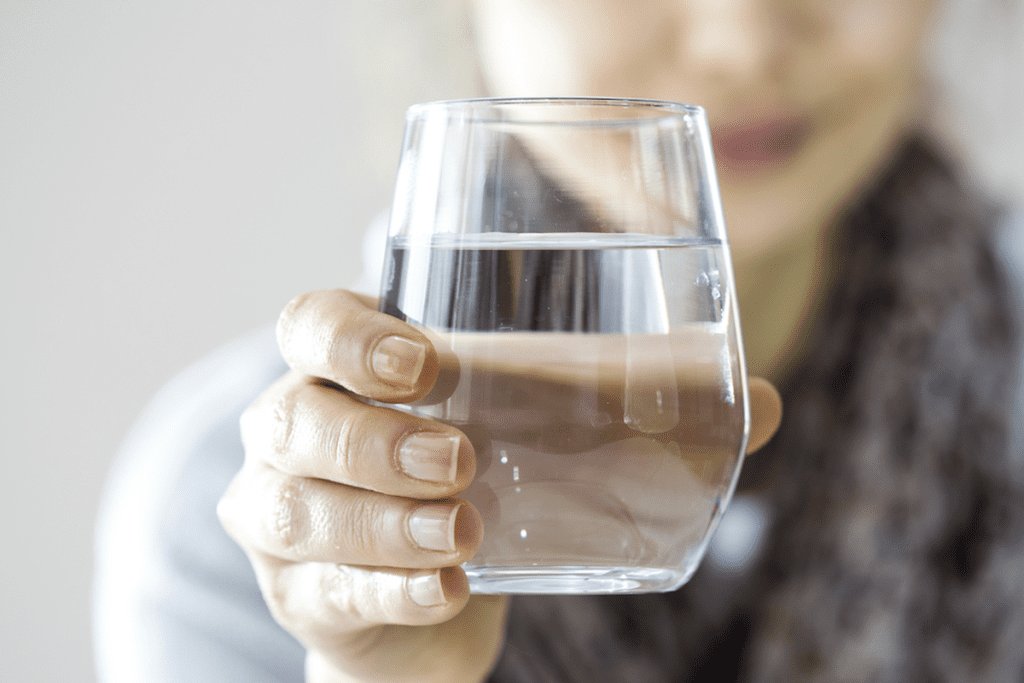Last Updated on October 31, 2025 by

Many people facing drug tests look for quick ways on how to come up clean on a drug test and “clean” their urine. But many online remedies don’t have scientific proof. They might even be harmful. We look into the truth about detox drinks and give advice based on science.
Detox drinks and kits are often seen as magic solutions. But studies show they don’t really work. Some can even harm your health. We aim to clear up myths about detox remedies and give a science-backed guide on how to come up clean on a drug test.
The idea of ‘cleansing’ urine is popular, but what really happens? Our bodies have a complex system for getting rid of substances. This system is key to keeping us healthy.

The liver and kidneys are vital for detox. The liver breaks down substances so they can be removed. The kidneys filter waste from the blood, sending it out in urine. This natural process works well without needing extra help.
When we eat or drink, our body works to get rid of what’s not needed. This involves many parts working together. For example, the liver uses enzymes to break down toxins, and the kidneys filter waste from the blood.
Many quick “cleansing” methods claim to speed up toxin removal. But there’s little science to support these claims. Detox drinks, for instance, may promise to clean urine, but research is lacking.
Quick “cleansing” methods can be misleading. Drinking vinegar water or using detox products might not really help. In some cases, they can even be dangerous, causing dehydration or interfering with medications.
Knowing how urine “cleansing” works helps us see our body’s natural detox abilities. While a quick fix might seem appealing, it’s better to stick with proven detox methods.
Drinking water is key to changing urine composition. It’s a simple way to dilute urine and lower the levels of substances in it.

Drinking water changes urine concentration. Adequate hydration makes urine less concentrated. This can lower waste and substance levels. But remember, water doesn’t speed up detox.
The liver and kidneys handle detox. Water helps them work better. But drinking lots of water doesn’t make toxins leave the body faster.
Water alone can’t detoxify well. Drinking too much water doesn’t get rid of fat-soluble toxins. For drug tests, water might dilute urine, but it won’t remove substances.
Substances like cannabis are stored in fat. Water doesn’t change how fast they’re released into urine.
Too much water is bad. Overhydration can upset electrolyte balance. This can lead to hyponatremia, a sodium imbalance.
Symptoms of too much water include nausea and vomiting. In serious cases, it can cause seizures or coma. It’s important to stay hydrated, but not overdo it.
The market is full of detox drinks claiming to cleanse the urine. But do they really work? These products promise quick fixes for drug tests or body detox. But what do we know about their effectiveness and safety?
Detox drinks usually have herbal extracts, vitamins, and minerals. Some common ingredients include:
These ingredients might sound good, but their detox effect is unclear.
Despite their claims, there’s little scientific proof for detox drinks. Most rely on stories, not scientific studies. For example, a study on apple cider vinegar (ACV) detox drinks found ACV has health benefits, but detox claims are unproven.
When looking for the best pot cleanse or detox drink, look beyond marketing. Check the scientific evidence.
Detox drinks might offer a quick fix, but can be risky. Possible side effects include:
For those looking to pass a drug test, weigh the risks and benefits. Using apple cider vinegar for a detox drink without knowing its risks can be dangerous.
In summary, while detox drinks are common and marketed as effective, their real effectiveness and safety are uncertain. Always approach these products with caution and talk to a healthcare professional before using them.
Apple cider vinegar (ACV) is popular as a detox drink, but does it really work? We need to look at the myths and facts about ACV for urine cleansing. It’s important to know if its detox claims are true or not.
Some people say ACV can remove toxins from the body, including in urine. They think the acetic acid in ACV can change the pH of urine. This might hide or remove drug metabolites. But we should check if these claims are really true.
Key claims include:
ACV has been studied for many health benefits, but its role in urine cleansing is unclear. There’s not much research on ACV’s detox effects. Most studies look at its benefits for digestion, weight, and blood sugar.
“There is no conclusive evidence to support the claim that apple cider vinegar can significantly alter the body’s detoxification processes or ‘cleanse’ urine.” “ A Physician
A study in the Journal of Food Science showed ACV’s antimicrobial properties. But, its direct effect on urine or drug metabolites is not proven.
If you want to try ACV as a detox drink, follow these guidelines. Always mix ACV with water. Too much ACV can hurt your stomach. A good mix is 1-2 tablespoons of ACV in 8 ounces of water.
Important safety considerations:
In conclusion, ACV has health benefits, but its role as a detox drink is mostly based on stories, not science. Always use it with caution and know the facts.
Cranberry and other fruit juices are known for their health benefits. But what does science say about their detoxifying effects? We look into their traditional uses, scientific support for detox, and any extra health perks they offer.
Cranberry juice is often used to help with urinary health. It’s believed to prevent or treat urinary tract infections (UTIs). This is because it may stop bacteria from sticking to the bladder and urinary tract walls.
While cranberry juice is linked to urinary health, its detox role is complex. Research on its detox effects is limited. Most studies focus on preventing UTIs, not detoxing the urine. The scientific community is cautious about its detox claims.
Cranberry and other fruit juices have many health benefits. They are full of antioxidants, vitamins, and minerals. For example, cranberry juice may help the heart and lower disease risk. Adding different fruit juices to your diet can be good, but watch the sugar.
When using cranberry or fruit juices for health, pick low-sugar options. They should be part of a balanced diet. Always talk to a healthcare professional, even for simple health remedies.
When you face a drug test, knowing the science behind it is key. Drug tests have gotten smarter, making it hard to pass without the right prep.
Today’s drug tests can find many substances, from illegal drugs to some meds. They’re very good at spotting even tiny amounts of drugs or their byproducts in urine. We’ll look at the different tests and how well they work to help you understand what’s at stake.
The main tests are immunoassay and gas chromatography-mass spectrometry (GC-MS). Immunoassay is fast, while GC-MS is more accurate. Knowing this can help you get ready for the test.
Tests not only look for drugs but also for cheating attempts. Labs use tests like checking urine’s creatinine, specific gravity, and pH levels. Trying to cheat can make your test invalid or even positive.
To avoid trouble, it’s important to know what labs look for. Some labs check for chemicals not usually in urine or in odd amounts when someone tries to cheat. For more tips on drug test prep, check out https://www.nursingscience.org/how-pass-a-drug-test.
How long drugs stay in urine varies a lot. It depends on the drug, how much you took, and your body’s way of processing it. For example, marijuana can show up in urine for days to weeks, depending on how often and how much you use. Cocaine, on the other hand, might only be detectable for a few days.
Knowing how long drugs stay in your system is key when you’re facing a test. This info helps you plan and prepare better. We’ll give you a rundown of typical detection times for common drugs.
THC, the active part of cannabis, stays in the body for a long time. This is because THC is fat-soluble, which means it can be stored in fatty tissues. Knowing this is key for those trying to get THC out of their system, like people facing drug tests.
THC gets broken down by the liver into different parts, some of which can show up in drug tests. How fast THC leaves the body can differ a lot between people. This depends on things like how fast they metabolize, how often they use cannabis, and their body type.
Key factors influencing THC elimination include:
There are detox drinks on the market that claim to help get rid of THC. These drinks usually have things like diuretics, herbs, and other substances that might help get rid of THC faster.
Some common ingredients include:
But, there’s not much scientific proof that these drinks really work. It’s important to be careful and know that how well they work can vary a lot.
How long it takes for THC to leave the body can be anywhere from a few days to weeks. For people who don’t use cannabis often, THC might be gone from urine in 3-4 days. But, for those who use it more, it could take weeks.
General guidelines for THC detection windows are:
Knowing these timeframes and what affects them can help people get ready for drug tests. It can also help them make smart choices about using cannabis.
Knowing how to pass a drug test is key. We’ve looked at ways like drinking water, using detox drinks, and apple cider vinegar detox. But the best way is to let your body naturally get rid of substances. This is helped by staying hydrated and making healthy choices.
Our look into apple cider vinegar detox and others shows that quick fixes don’t always work. Instead, focus on lasting habits that improve your health. This way, you’re ready for drug tests in the best way possible.
In short, while detox methods promise quick fixes, a healthy lifestyle and patience are better. We suggest focusing on your health and making smart choices about drug tests.
There’s no single drink that can “clean” urine for a drug test. Knowing how your body processes substances is important. Focus on natural detox methods instead of quick fixes.
Drinking water helps with hydration. But it’s not a reliable way to quickly remove THC. THC stays in fat cells and can be in your system for a long time.
The success of commercial detox drinks is often in doubt. Their ingredients may not be proven to help detox. Some could even be harmful to your health.
There’s little scientific proof that apple cider vinegar cleanses urine for drug tests. But it can be good for your health if used safely.
Cranberry juice is good for urinary health. But, there’s no strong evidence that it detoxifies urine. It might have other health benefits, though.
THC’s stay in your system vary. It depends on how often you use it, your metabolism, and body fat. Knowing these factors helps set realistic expectations.
Detection times for drugs vary. It depends on the drug, test sensitivity, and individual factors. Urine tests can detect THC, opioids, and amphetamines within certain time frames after use.
To prepare, learn about drug tests and their detection windows. Also, keep a healthy lifestyle to support your body’s detox processes.
Yes, trying to cheat on a drug test can be risky. It’s dangerous to use unproven detox drinks or overhydrate. Always prioritize your health and consider the risks.
The best way to pass a drug test is to let your body naturally clear the substance. Understand your body’s detox processes and avoid substances for a long time before the test.
Subscribe to our e-newsletter to stay informed about the latest innovations in the world of health and exclusive offers!